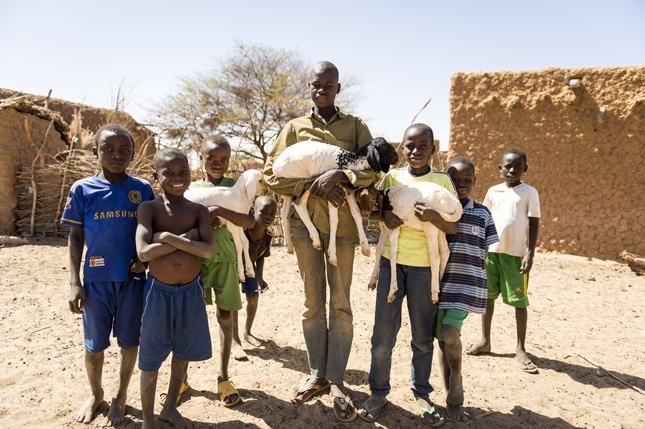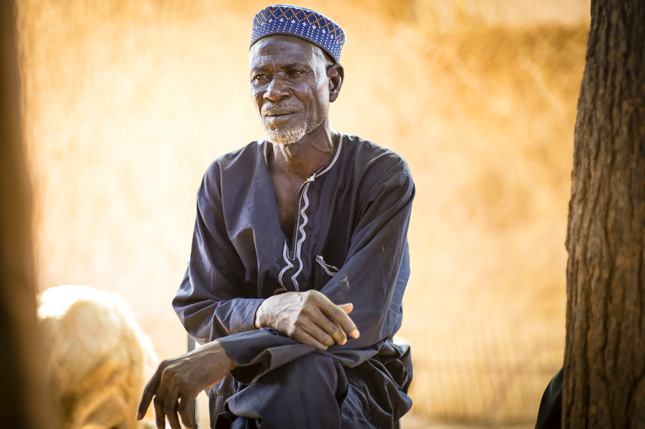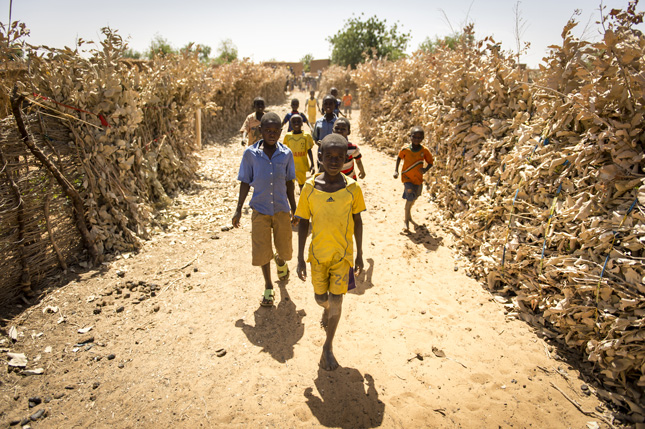-
Necessary Partners: The Sahel Shows Why Development and Resilience Efforts Can’t Forget Men
November 19, 2014 By Allison Shean
One-third of boys in the developing world don’t face the risk of marriage and pregnancy before age 18. There are no laws preventing men from owning land or property. Men don’t bear the brunt of increasingly frequent and severe disasters. And men don’t hold fewer than 25 percent of parliamentary seats worldwide.
So why, you might ask, is today International Men’s Day?
Gender influences people’s abilities to learn, cope, adapt, and transform in the face of disaster
It may seem strange to honor men in a world where they enjoy myriad advantages; however, today is a good reminder for those of us working in the world’s most difficult places that all people, including men and boys, face risks because of their gender roles and responsibilities. Nowhere is this truer than in Africa’s Sahel region – an area beset by chronic poverty, food shortages, erratic rainfall, and conflict.
Mercy Corps recently conducted research in Mali, Niger, and Nigeria to study how our programs can help the region’s households and communities better withstand recurring crises. As part of this research, we looked at how gender influences people’s abilities to learn, cope, adapt, and transform in the face of disaster.
Although we found women and girls were often more vulnerable and faced greater risks from shocks and stresses, we also learned that gender influences how men and boys perceive and experience crises.
For example, some community-held beliefs about masculinity and manhood put men and boys at increased risk of violence and illnesses such as HIV/AIDS. Additionally, their involvement in agriculture, forestry, and fisheries means their livelihoods often rely on resources impacted by climate change.
We found that gender also influences the strategies that men and boys use to cope with shocks like drought. With more mobility than women or girls, migrating for income-generating opportunities has become a common practice for men in the Sahel. This coping strategy can be dangerous. When men migrate they often take unsafe routes and travel methods. Upon arrival at their destination, they are at increased risk of exploitation and becoming involved in illegal or dangerous work.
Engage Men to Build Household and Community Resilience
Men and boys have unique needs and priorities that development and humanitarian organizations must understand and work to address, especially in resilience-focused programs.

We can’t understand how gender influences the systems in which we work if we forget to consider the vulnerabilities and capacities of women and men, girls and boys. When we talk about integrating gender into our development and aid efforts – especially as we’re considering how to build and support resilience in vulnerable regions around the globe – we need to move beyond the all-too-simple notion that a focus on “gender” means a focus on women and girls.
Moreover, men and boys are essential to our efforts to promote gender equality and to empower communities. Our research concluded that greater resilience in the Sahel requires the empowerment of women and girls through increased access to resources and increased influence in household and community-level decision making. We can’t achieve this if we don’t partner with men and boys.
Move beyond the all-too-simple notion that a focus on “gender” means a focus on women and girls
Men are often gatekeepers in their households and communities, making decisions that impact and influence the behavior, actions, and access of others. In the Sahel, entire families contribute to household production of cereals; men, however, typically control access to the harvested crop. When they migrate elsewhere for work, they often leave women and children at home with only a small portion of cereals and no access to the remaining stock (this is due in part to stereotypes that women will waste the food). As a result, women and children may go hungry, while food stocks remain.
We see women becoming de facto heads of households with increased responsibility for household needs, but without a corresponding increase in decision-making power or the necessary control over resources. This needs to change if we want households to thrive in the face of crisis.
Niger’s Husband Schools
By engaging men and boys in our work, we can work to counter these harmful stereotypes, and at the same time advance the status and well-being of women and girls.
Since 2012, Mercy Corps’ USAID-funded Sawki program in Niger has supported the creation of over 120 “husband schools.” These schools, a concept first introduced by the United Nations Population Fund, educate men on topics such as early marriage, young girls’ education, birth spacing, and family planning.

This education is especially important in a place like Niger, where 36 percent of girls are married by age 15, and 75 percent by age 18. Once girls in Niger are married, very few use contraception despite the importance of spacing their childbearing. Medical complications from pregnancy and childbirth are the leading cause of death among girls aged 15 to 19. As of 2012, only 12 percent of women and girls in Niger reported using contraception, resulting in the country having the world’s highest rate of population growth, with an average of 7.6 children per woman. This has put an enormous strain on the country’s dwindling resources.
Mercy Corps’ husband schools are working to offset these statistics by challenging norms that have systematically disadvantaged women and girls and left communities at increased risk of food insecurity.
Men who are involved in the program become champions for gender equity – in their households and throughout the broader community, where they share critical information about family planning. Some even report helping collect water and firewood, tasks previously reserved for wives and daughters, allowing women and girls more time for school, work, and childcare.
All Hands Needed for Transformational Change
The husband schools illustrate the power men have to bring about positive changes in attitudes, roles, and relationships, benefiting women and girls, as well as the community as a whole.
We have to work with all people to transform households, communities, and systems
A gender-integrated approach that empowers women and girls, while also partnering with men and boys, will be crucial for transforming deeply entrenched inequality and achieving long-term, sustainable change in the Sahel.
Shocks and stresses, despite the destruction and tragedy they cause, can also open up opportunities for positive change, enabling women and men to take on new and more progressive gender roles. Seizing these opportunities, however, will require aid organizations to better engage men and boys in our gender programming.
We have to work with all people to transform households, communities, and systems and make resilience a reality. Today is an important reminder of the need for this partnership.
So, Happy International Men’s Day, and thank you to the men and boys around the globe who contribute to positive change in their households and communities.
Allison Shean is Mercy Corps’ gender and resilience research officer, where she helps connect and integrate gender into the agency’s resilience efforts through research, capacity-building, and technical support.
Sources: Devex, The Economist, The Girl Effect, International Fund for Agricultural Development, Inter-Parliamentary Union, Mercy Corps, PlusNews, UNICEF, UN Food and Agriculture Organization, UN Population Fund.
Photo Credit: Scenes from Niger, used with permission courtesy of Sean Sheridan/Mercy Corps.
 A Publication of the Stimson Center.
A Publication of the Stimson Center.





